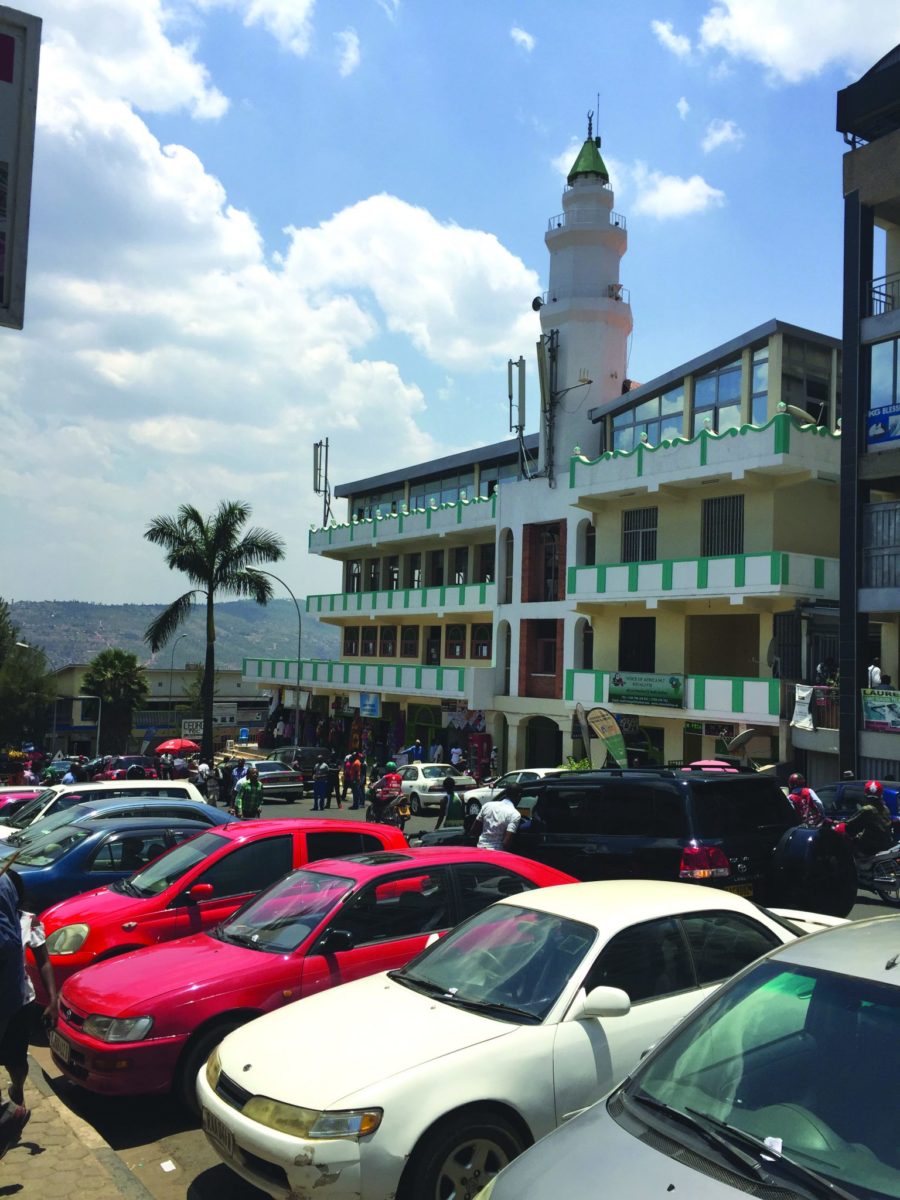At’s a regular weekday in Kigali’s lively central business district where single-storied shop tenements, with tables heaving with African artefacts, jostle with gleaming commercial towers. On the arterial street by the high-rise Bank of Kigali, vendors hawk cheap clothing, and shops smelling of dust and sweat sell colorful jewelry and bric-a-brac. Most have a cash-only policy, a far cry from the bank next door, which, in its sprawling air-conditioned halls, doles out digital payment solutions for Rwanda’s consumers.

Daniel Monehin Division President MasterCard Sub-Saharan Africa
But the services-savvy Rwanda is proving it’s ahead of most African countries on innovations, not just in the financial space, but in general. As laid out in its Vision 2020 strategy, it aims to include 90% of its citizens in the financial mainstream. ‘Cashless Rwanda’ are the new buzzwords in the corridors of power.
At the World Economic Forum held here in May, Rwanda’s government signed a deal with Mastercard, the technology company in the global payments industry, to promote the move to a cashless economy. High on Rwanda’s agenda is digitization of school fees and national healthcare claim payments.
At the announcement, Francis Gatare, CEO of Rwanda Development Board (RDB), had said: “We are confident Rwanda’s partnership with Mastercard will be beneficial to the country and its citizens as we are implementing our vision of becoming a knowledge-based service-oriented economy. I believe this can only be achieved as we embrace the fourth industrial revolution.”
Loading...
The MasterCard Center for Inclusive Growth has committed up to $1 million over the next three years to advance economic growth and financial inclusion in the land of a thousand hills.
The country, which famously triumphed over tragedy since the genocide against the Tutsi in 1994, is now up for the challenge of embracing technology to overcome concerns like financial literacy and inclusion of the rural poor, who are mostly still reliant on cash.
How big is the cash economy in Africa?
“According to a recent McKinsey report, two billion people remain outside of the formal economy. Various studies confirm over 90% of retail transactions in sub-Saharan Africa are in cash,” says Daniel Monehin, who leads Mastercard’s business across sub-Saharan Africa as Division President.
“In Rwanda, only 42% of adults own a financial account, whether formal or informal… We know that government cannot achieve financial inclusion alone, and neither can the private sector – we need to work together.”
In September, Bank of Kigali, RwandaOnline and Mastercard launched Irembo – an online payment solution to make online payments safer, simpler and smarter.
RwandaOnline developed Irembo, including six government engines, allowing Rwandans to make online payments to any of these government entities through the use of debit, credit or prepaid payment cards. Residents can pay for driver’s licenses, birth certificates, and identity cards. The portal also allows travelers to Rwanda to apply and pay for travel visas.

Raghu Malhotra
“At Mastercard, we don’t limit our thinking to ‘traditional’ versus ‘new’ – we explore what is going to meet the needs of a market and its citizens as there is not one solution that can meet all needs. Rather our focus is on creating a ‘world beyond cash’, developed through partnerships and driven by advances in technology,” says Monehin.
Indeed, Rwanda’s aim for a cashless culture is good news for the city’s new innovators and entrepreneurs.
Afshon Wallace, the 26-year-old founder of 250 Taxi, a web-based transport solutions provider connecting riders and taxi drivers using a mobile app and website, launched earlier this year, says it’s encouraging. Wallace says he caters mostly to expatriates and is witnessing growth of up to 100%.
“The cashless payments ecosystem in Rwanda is still in its infancy. The government’s push for paperless payments through the smart Rwanda master plan has been a great boost and great sensitization programs are being carried out by many players,” says Wallace.
But there are myriad challenges.
“The population lacks the adequate financial awareness on cashless payments. We have had less than three percent of our users asking whether they can use cards.”
Wallace says compared to the M-Pesa service in neighboring Kenya that has seen great success, locally, mobile money is still to catch up.
Yet, products such as Tap&Go (smart cards enabling cashless payments) on Kigali’s public buses are becoming popular.
“We have huge government support when it comes to e-payments,” says Patrick Buchana, the 26-year-old CEO of AC Group, who started Tap&Go in 2015.
David Karuletwa, the Rwandan-Canadian COO of RSwitch, a financial interoperable solutions company, whose passion is financial inclusion using fintech, says Rwanda is primed to be a hub for financial services.
In 2010, RSwitch launched Rwanda’s first debit card issued by banks in Rwanda and later rebranded it to SmartCash card.
“Rwanda and the entire pan-African market are paving the way for financial inclusion using mobile banking and payment solutions,” says Karuletwa.
From paper to e-payments, cash to cashless, Rwanda’s bank notes are moving out of the wallet into the world of www.
Loading...
